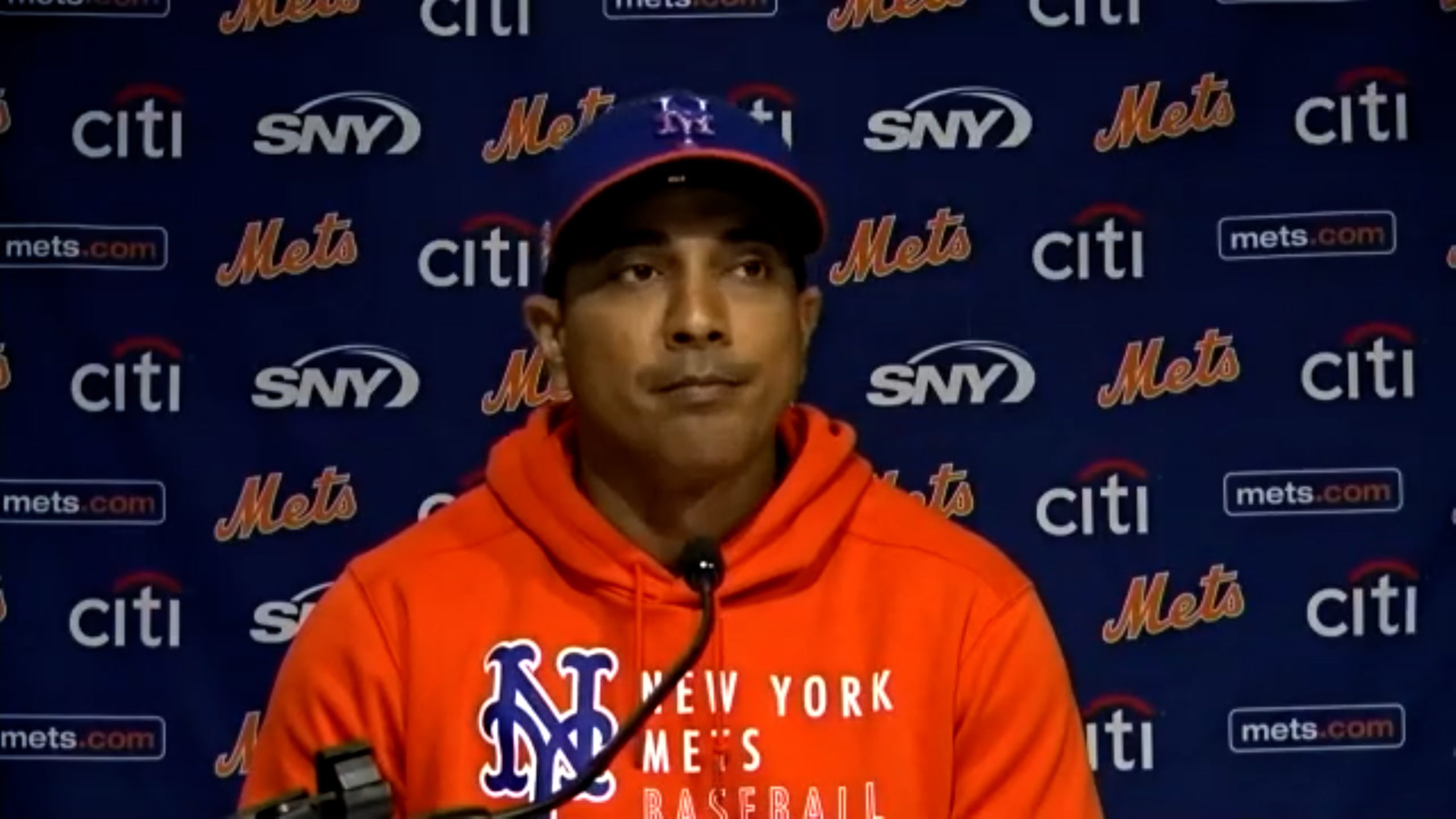Luis Rojas Jane Elliott - Understanding Nuanced Conversations
When we think about conversations, especially those involving public figures, there's often more going on than what first meets the ear. It's almost as if words carry extra weight, a bit like echoes of deeper ideas, and really, getting to the heart of what someone means can be quite a task. People might say things, you know, but their true message, the real reason they are speaking, can sometimes hide just beneath the surface, making it rather tricky to grasp fully without a closer look.
So, when we talk about folks like Luis Rojas or Jane Elliott, who have, in a way, been part of many public discussions, the way we listen to what is being said about them, or by them, really matters. It's not just about the words themselves, but about the feelings and intentions behind those words, which can be quite varied, and that, is that, something we should always keep in mind.
This is where, in some respects, thinking about how we process language comes into play, a bit like how a system, which we might call 'luis,' helps to sort through spoken words. This kind of system, you see, works to figure out what people are trying to achieve with their words, their real goals, and it also helps to pull out the key pieces of information from what they are saying, leading to a way of understanding language that is quite refined and full of subtle points.
- Aishah Sofey Leaks
- Boruto Erotic Adventure
- Porn Corinna Kopf
- Iran Mens National Volleyball Team
- Jennifer Mendez Porn
Table of Contents
- Luis Rojas and Jane Elliott - Who Are These Individuals?
- How Does Nuanced Language Help When Discussing Luis Rojas Jane Elliott?
- What Valuable Information Can We Get About Luis Rojas Jane Elliott?
- The Importance of High-Quality Language Models for Conversations About Luis Rojas Jane Elliott
- Why Do We Need a Nuanced Approach to Luis Rojas Jane Elliott's Public Presence?
- Can a System Like 'luis' Truly Grasp the Goals Behind Talking About Luis Rojas Jane Elliott?
- What Are the Core Goals When People Talk About Luis Rojas Jane Elliott?
- Applying These Insights to Public Dialogue Around Luis Rojas Jane Elliott
Luis Rojas and Jane Elliott - Who Are These Individuals?
When we bring up the names Luis Rojas and Jane Elliott, we are talking about two people who have made a mark in quite different areas, yet their public roles often involve a lot of talk, a lot of different points of view. Luis Rojas, for example, is someone many people know from the world of professional baseball, having taken on the role of managing a team at the highest level. His decisions, his team's performance, and his way of leading often spark a good deal of conversation among fans and those who follow the game, you know, making his public image something that many people discuss quite a lot.
Then there is Jane Elliott, a person recognized for her long-standing work as an educator and her very direct approach to teaching about prejudice and discrimination. She is quite famous for a particular exercise she developed, which has been used to help people experience, in a small way, what it feels like to be treated differently based on a physical trait. Her work has, in a way, generated a lot of discussion, some of it very strong, about social justice and how we see one another, and that, is that, a topic many people feel deeply about.
So, we have one person from the fast-paced world of sports leadership and another from the deep, sometimes challenging, area of social education. Both of them, however, find themselves at the center of public conversations, where what they do and what they say gets examined from many angles. Understanding these conversations, especially the subtle points within them, is really quite important, as a matter of fact, for anyone trying to grasp the full picture.
- Yua Sakuya
- Mary Louise Parker Nude
- Only Fans Johnny Sins
- Yourfavmelons Onlyfans
- Georgina Rodríguez Nude Pic
Personal Details - Luis Rojas
Here are some basic details about Luis Rojas, for those who might be curious:
| Known For | Baseball Manager |
| Background | From a family with deep roots in professional baseball |
| Notable Role | Managed a Major League Baseball team |
Personal Details - Jane Elliott
And here are some details about Jane Elliott, providing a bit of background:
| Known For | Educator and Anti-Racism Activist |
| Key Work | Creator of the "Blue Eyes/Brown Eyes" exercise |
| Area of Focus | Teaching about prejudice and discrimination |
How Does Nuanced Language Help When Discussing Luis Rojas Jane Elliott?
When we talk about understanding conversations, especially those that touch on figures like Luis Rojas or Jane Elliott, having a way to grasp the subtle differences in how people speak is, actually, a huge help. Think about it: someone might praise a coach's strategy, while another might question a specific decision. Both are talking about the same person, Luis Rojas, but their underlying message, their "intent," is quite different. A system, like the one we're calling 'luis,' is designed to pick up on these kinds of subtle points, to really hear what's being said between the lines, you know, rather than just the words themselves.
This kind of language processing works by, in some respects, looking at the entire flow of a conversation. It doesn't just grab individual words; it tries to piece together the larger idea, the overall purpose of someone's statement. So, when people are talking about Jane Elliott's work, for instance, some might be expressing deep admiration for her bravery, while others might be voicing concerns about her methods. The words might seem similar, but the real meaning, the true feeling behind them, is what this kind of refined language processing aims to get at, and that, is that, something very useful for understanding public sentiment.
It's about moving past just the surface level of what's spoken or written. A person might say, "That was a bold move," about Luis Rojas. Without a deeper look, that could mean anything. But if the system can pick up on the context, the tone, and other surrounding words, it can figure out if "bold" means "courageous and smart" or "reckless and risky." This ability to distinguish between shades of meaning is, quite frankly, what makes understanding conversations about public figures so much richer and more accurate.
What Valuable Information Can We Get About Luis Rojas Jane Elliott?
So, what kind of "valuable information" are we really talking about when we use a system like 'luis' to look at conversations concerning Luis Rojas or Jane Elliott? Well, it's not just simple facts, like "Luis Rojas managed a team." It's more about pulling out the specific details, the "entities," that give meaning to a sentence. For example, if someone says, "Luis Rojas's decision to bring in the reliever in the seventh inning changed the game," the valuable information might be the "reliever," the "seventh inning," and the "game-changing" aspect of the decision. These are the pieces of information that help us understand the specific context of the conversation, and that, is that, pretty important for getting the full story.
Similarly, when people discuss Jane Elliott, the valuable information could be references to her "Blue Eyes/Brown Eyes exercise," the "impact on students," or the "criticisms leveled against her approach." These are the specific things, the "entities," that people are focusing on. A refined language system helps to distill these bits of information from the general flow of talk, making it much easier to see what people are actually talking about and what aspects of Luis Rojas or Jane Elliott's work are getting the most attention. It's like sifting through a lot of sand to find the gold nuggets, you know, the really meaningful bits.
This process of finding the key pieces of information also helps us to see patterns. If many conversations about Luis Rojas keep mentioning "player development," then that's a valuable insight into how people perceive his strengths or weaknesses. If discussions about Jane Elliott frequently bring up "long-term effects," then that tells us what aspects of her work are resonating with people over time. This kind of detailed extraction of facts and ideas from sentences provides a much clearer picture of the public discourse, which is, in a way, something very helpful for anyone trying to understand the broader narrative.
The Importance of High-Quality Language Models for Conversations About Luis Rojas Jane Elliott
Having a language model that offers "high quality, nuanced language" is, honestly, quite a big deal, especially when the topics are as varied and sometimes sensitive as discussions around Luis Rojas or Jane Elliott. A system that can truly grasp the subtle differences in meaning, the underlying tone, and the specific context of words makes all the difference. It's not enough for a system to just recognize words; it needs to understand how those words fit together to create a full thought, a complete idea, and that, is that, a pretty complex task.
Imagine trying to understand a debate about Luis Rojas's coaching style. Some fans might use sports jargon, others might speak with emotional frustration, and still others might offer calm, analytical observations. A truly high-quality language model needs to be able to handle all these different ways of speaking, to not get tripped up by slang or strong feelings, and to still pull out the core message. This kind of precision ensures that the insights gained from conversations are actually reliable and reflect what people truly mean, which is, in some respects, a very important part of getting the full picture.
Similarly, when people discuss Jane Elliott's work, the language can be deeply personal, sometimes academic, and often charged with strong opinions. A language model that can process this kind of rich and varied input, that can understand the emotional weight behind certain phrases, is far more useful than one that just picks out keywords. This level of refinement allows for a much deeper and more accurate understanding of public sentiment and differing viewpoints, making it, you know, a really valuable tool for anyone wanting to make sense of complex social conversations.
Why Do We Need a Nuanced Approach to Luis Rojas Jane Elliott's Public Presence?
The public presence of figures like Luis Rojas and Jane Elliott is, very often, not a simple, straightforward thing. People have many different experiences and opinions, which means that any conversation about them is likely to be full of subtle points, different interpretations, and varied feelings. A "nuanced approach" to understanding these conversations means we are not just looking for a simple "good" or "bad" label, but rather trying to understand the full spectrum of opinions and the reasons behind them. This kind of deep listening is, actually, what helps us avoid oversimplifying complex public figures and their impact.
For Luis Rojas, for example, a nuanced approach means recognizing that a fan's frustration might stem from a deep love for the team, not just a simple dislike of the manager. It means understanding that criticisms of his decisions might be based on different strategic philosophies, not just personal attacks. This kind of careful attention to the subtle meanings in language allows for a much more complete and fair assessment of public opinion, and that, is that, something that can really make a difference in how we perceive public figures.
With Jane Elliott, a nuanced approach is, perhaps, even more essential. Her work often touches on very sensitive topics, and people's reactions can be intensely personal. Understanding the subtle points in conversations about her means recognizing the difference between genuine critique, emotional response, and outright misunderstanding. It means appreciating the different ways her message resonates with various groups of people. This careful, detailed way of processing language helps us to grasp the full complexity of her public reception, which is, in a way, something that truly reflects the multifaceted nature of her work.
Can a System Like 'luis' Truly Grasp the Goals Behind Talking About Luis Rojas Jane Elliott?
A really interesting part of how a system like 'luis' works is its ability to "interpret user goals," or "intents," as they are often called. This means it tries to figure out *why* someone is saying something, what their underlying purpose is. When people talk about Luis Rojas, for instance, are they trying to offer advice, express disappointment, share information, or just vent? Getting to the bottom of these goals is, honestly, pretty important for truly understanding the conversation, because the same words can have very different meanings depending on the speaker's intent.
For example, someone might say, "Luis Rojas really needs to rethink his bullpen strategy." The words are clear, but the intent could be a constructive suggestion, a frustrated complaint, or even a sarcastic remark. A system with nuanced language understanding aims to pick up on these subtle cues, like tone or surrounding phrases, to figure out the true goal behind the statement. This capability allows for a much richer analysis of public discourse, letting us see not just *what* is being said, but *why* it's being said, and that, is that, a pretty advanced level of comprehension.
Similarly, when people engage in discussions about Jane Elliott, their goals can be incredibly varied. Some might be seeking to learn more about her methods, others might be defending her work, while some might be challenging her approach. A system that can interpret these different intents helps us to categorize and understand the diverse motivations behind the conversations. This means we can differentiate between, say, someone looking for resources to implement similar exercises versus someone expressing a moral objection, which is, in some respects, a very valuable distinction to make.
What Are the Core Goals When People Talk About Luis Rojas Jane Elliott?
So, what are some of the typical "goals" or "intents" that people might have when they are talking about Luis Rojas or Jane Elliott? Well, for Luis Rojas, people might want to express support for his leadership, perhaps to show solidarity during a tough season. They might also aim to critique his decisions, hoping to spark a discussion about alternative strategies. Sometimes, the goal is simply to share news or updates about the team's performance under his direction. And, you know, sometimes it's just to share a personal opinion or feeling about the team's fortunes,



Detail Author:
- Name : Jayce O'Conner
- Username : brown83
- Email : qquigley@kertzmann.com
- Birthdate : 1986-10-18
- Address : 930 Adela Station Suite 621 Port Enafurt, IN 99144-6300
- Phone : (803) 754-9309
- Company : Nolan and Sons
- Job : Gaming Cage Worker
- Bio : Enim dolore quo est esse laborum laboriosam. Et voluptates quo perspiciatis itaque laborum.
Socials
twitter:
- url : https://twitter.com/dconnelly
- username : dconnelly
- bio : Ad omnis dignissimos ut beatae. Eaque adipisci in et. Laboriosam aut odit necessitatibus earum ex.
- followers : 4105
- following : 1575
tiktok:
- url : https://tiktok.com/@dominique_connelly
- username : dominique_connelly
- bio : Et aliquid totam maiores alias ipsa iste consequatur.
- followers : 5402
- following : 764
linkedin:
- url : https://linkedin.com/in/dominique.connelly
- username : dominique.connelly
- bio : Error sed beatae eaque quia et vel dolor.
- followers : 736
- following : 374